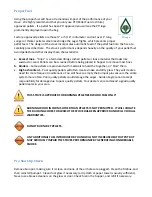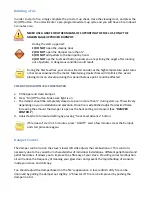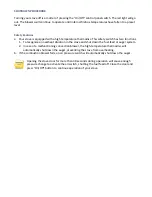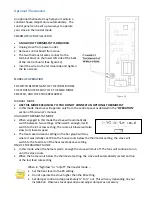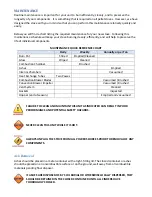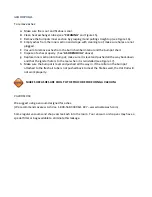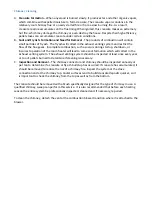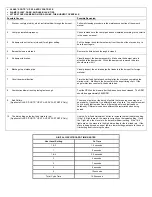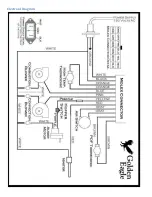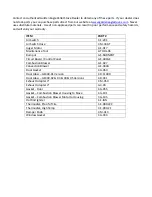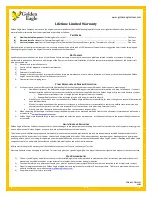
STOVE FEEDS PELLETS, BUT WILL NOT IGNITE
Possible Causes: Possible
Remedies:
1.
Air damper open too far for ignition.
Push the air damper in closer to the side of the stove for startup. In some
situations it may be necessary to have the damper completely closed for
ignition to take place. After there is a flame, the damper can then be
adjusted for the desired feed setting.
2.
Blockage in igniter tube or inlet for igniter tube.
Find the igniter housing on the backside of the firewall. The air intake hole is
a small hole located on bottom side of the housing. Make sure it is clear.
Also, look from the front of the stove to make sure there is not any debris
around the igniter element inside of the igniter housing.
3.
The burnpot is not pushed completely to the rear of the firebox.
Make sure that the air intake collar on the burnpot is touching the rear wall of
the firebox.
4.
Bad igniter element.
Put power directly to the igniter element. Watch the tip of the igniter from the
front of the stove. After about 2 minutes the tip should glow. If it does not,
the element is bad.
5.
The control board is not sending power to the igniter.
Check the voltage going to the igniter during startup. It should be a full
current. If the voltage is lower than full current, check the wiring. If the
wiring checks out good, the board is bad.
SMOKE SMELL COMING BACK INTO THE HOME
Possible Causes: Possible
Remedies:
1.
There is a leak in the vent pipe system.
Inspect all vent pipe connections. Make sure they are sealed with RTV
silicone that has a temperature rating on 500 degree F or higher. Also, seal
joints with UL-181-AP foil tape. Also, make sure the square to round
adapter piece on the combustion blower has been properly sealed with the
same RTV.
2.
The gasket on the combustion blower has gone bad.
Inspect both gaskets on the combustion blower to make sure they are in
good shape.
CONVECTION BLOWER SHUTS OFF AND COMES BACK ON
Possible Causes: Possible
Remedies:
1.
The convection blower is overheating and tripping the internal
temperature shutoff.
Clean any dust off of the windings and fan blades. If cleaning the blower
does not help, the blower may be bad.
2.
Circuit board malfunction.
Test the current going to the convection blower. If there is power being sent
to the blower when it is shut off, then the control board is fine. If there is
NOT power being sent to the blower when it shuts off during operation, then
you have a bad control board.
Summary of Contents for Talon
Page 34: ...Electrical Diagram ...


